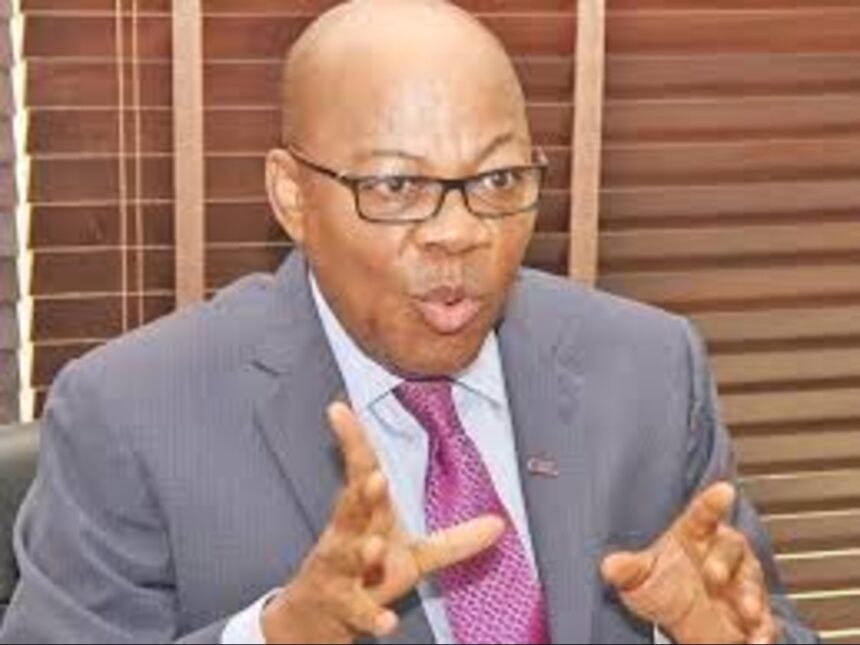…hails Tinubu for guaranteeing financial autonomy to LGs
Former President, of the Nigerian Bar Association (NBA), Dr. Olisa Agbakoba, has knocked the current federal structure of Nigeria that excessively centralized power and resources at the federal level while limiting the autonomy and capacity of states and local governments, saying that this arrangement had proven not only inefficient, but had also contributed to poor governance outcomes across the country and, therefore, the need for a meaningful restructuring.
Agbakoba made this call on Wednesday at a press conference which took place at his Apapa, Lagos office, saying that the country urgently needed a new constitution, with meaningful structuring, against the current model of a piecemeal constitutional amendment, which, according to him, “has proven ineffective, taking far too long (over 20 years) and failing to win popular and legitimate acceptance.”
Agbakoba posited that a meaningful restructuring must address three key issues, including what are the federating units, how to ensure fair fiscal federalism and revenue sharing, and how to ensure that power rotates fairly and inclusively, saying that on federating units three distinct models presented viable options for Nigeria’s restructuring.
According to him, for Model 1, the six geo-political zones currently existing in the country would become the primary federating units, saying that these zones “broadly accommodate Nigeria’s diversity, though not perfectly, as they contain unequal numbers of states.”
He said with such in place, each zone would have the autonomy to create its internal states and local governments as needed, and also create a more flexible system responsive to regional needs.
Agbakoba said for Model 2, which he tagged: “Enhanced State Federation,” the current 36 states would remain as federating units, but with constitutional measures to ensure greater equality among states within each zone, while Model 3, which he called Mixed Approach would recognize both the zones and states as federating units, creating a two-tier federal structure.
“Additionally, it would provide special status to certain areas of national significance—such as major cities with federal importance—and create special protections for minority groups that might otherwise lack adequate representation in either zone or state governance structures,” he said.
The former NBA president, while noting that the 1999 Constitution lacks popular acceptance because it was imposed by the military, insisted that massive devolution of powers from the Federal to state governments was vital, with two distinct types of devolution to consider, namely Political and Technical.
“Technical devolution presents fewer challenges to implement, as few would dispute that states are better positioned to manage drivers’ licenses, intrastate trade, prisons, marriage certificates, primary healthcare, education, and similar matters than the federal government.
“More politically sensitive matters like state policing might be addressed through the principle of Cooperative Federalism, with shared or joint power arrangements between Federal and state governments. For example, municipal policing could be established at the state level while streamlining the Federal Police Force within a shared power framework.
“Equally important is empowering local governments as the foundation of the Federal structure through the principle of subsidiarity, ensuring that governance is delivered at the lowest practical level,” Agbakoba said.
“This new constitution should provide a clause that strengthens Institutions that consolidate democracy. Institutions like the INEC, Police, ICPC, Accountant General, National Judicial Council, Attorney General, CBN, National Human Rights Commission, Judicature, EFCC, Public Defender, Code of Conduct Bureau, etc.
“We can copy Chapter 9 of the Constitution of South Africa, titled: ‘Institutions Consolidating Democracy,’ which guarantees independence and effective functioning of national institutions,” he said.
He, however, commended President Bola Ahmed Tinubu’s administration enforcing Section 7 of the Constitution, which guarantees financial autonomy for local governments and establishes democratically elected governance at the local level, describing local government as critical “because most citizens live at this level, and building capacity here is essential for effectively addressing primary healthcare, education, and other local concerns.”
Speaking further, the former NBA president, while noting that the country stands at a critical economic crossroads in 2025, as “recent data presents a nuanced picture of an economy showing promising signs of recovery, yet still underperforming its vast potential,” also commended President Tunubu’s administration’s bold economic reforms which he said had begun to yield positive results despite their initial short-term pains.
According to him, key reforms that have contributed to this gradual stabilization include the removal of fuel subsidies, which has redirected resources to more productive sectors, “Exchange rate unification, which has reduced arbitrage opportunities and brought greater transparency to currency transactions
Tax system reforms, which are closing numerous loopholes and simplifying the tax system.”
Besides, he said the establishment of the Nigeria Consumer Credit Corporation (CREDICORP) by the Tinubu government represents a significant step toward facilitating consumer credit.
Agbakoba said all initiatives had contributed to moderating inflation and strengthening the nation’s currency, adding that investor confidence had increased, with the naira appreciating by over 7 per cent against the dollar since November 2023 and supported by yields of up to 25 per cent on local bonds.
“These initiatives have contributed to moderating inflation and a strengthening naira. Investors’ confidence has increased, with the naira appreciating by over 7% against the dollar since November 2023, supported by yields of up to 25% on local bonds,” he said.
READ MORE FROM: NIGERIAN TRIBUNE
WATCH TOP VIDEOS FROM NIGERIAN TRIBUNE TV
- Relationship Hangout: Public vs Private Proposals – Which Truly Wins in Love?
- “No” Is a Complete Sentence: Why You Should Stop Feeling Guilty
- Relationship Hangout: Friendship Talk 2025 – How to Be a Good Friend & Big Questions on Friendship
- Police Overpower Armed Robbers in Ibadan After Fierce Struggle






